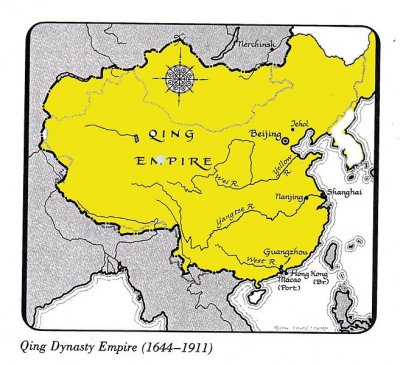Qing Dynasty Achievements
 The achievements of the Chinese Qing Dynasty were substantial, but perhaps its most important legacy was building the basis for modern China itself. When the dynasty came to power in 1644, its founding clan - the Jurchen Aisin Gioro - was a relatively unimportant group from Manchuria in the northeast.
The achievements of the Chinese Qing Dynasty were substantial, but perhaps its most important legacy was building the basis for modern China itself. When the dynasty came to power in 1644, its founding clan - the Jurchen Aisin Gioro - was a relatively unimportant group from Manchuria in the northeast.
By the time of the abolition of the imperial government in 1911, China had become a vast, unified, and multicultural nation. The first half-century of Qing rule saw war with the Ming, and in 1644 Qing forces captured Beijing, later itself to become the Chinese capital. In 1683, the Kangxi Emperor completed the conquest of China.
Expansion and Conquest
After China had been united, Qing forces continued to push into central Asia, especially during the late 18th century. The Qianlong Emperor's so-called "Ten Great Campaigns" lasted around 40 years. By this time, Qing China had reached the peak of its power and prosperity: the empire's population was around 400 million at its greatest extent.
Imperial China accepted tribute from neighboring states in return for maintaining peace. Gradually, the style of government changed: Manchurian influence had continued under the early emperors, but increasingly Confucian influences were felt, especially in the civil service and other aspects of bureaucracy.
Later Reforms
From the end of the 18th century onward, financial problems began to set in, thanks to persistently low tax rates. In the 19th century, European powers took control of several important ports and there were serious rebellions in central Asia. Nevertheless, the empire survived.
In the 1860s, the Tongzhi Restoration saw the birth of the so-called Self-Strengthening Movement, which resulted in a recovery of territory in the east. Late in the Qing period, there was a concerted attempt to bring China into the modern world with substantial legal reform and the introduction of elections. These continued until 1908, when the Emperor's death led to a more hardened stance, which eventually led to the revolution that brought imperial rule in China to an end.
